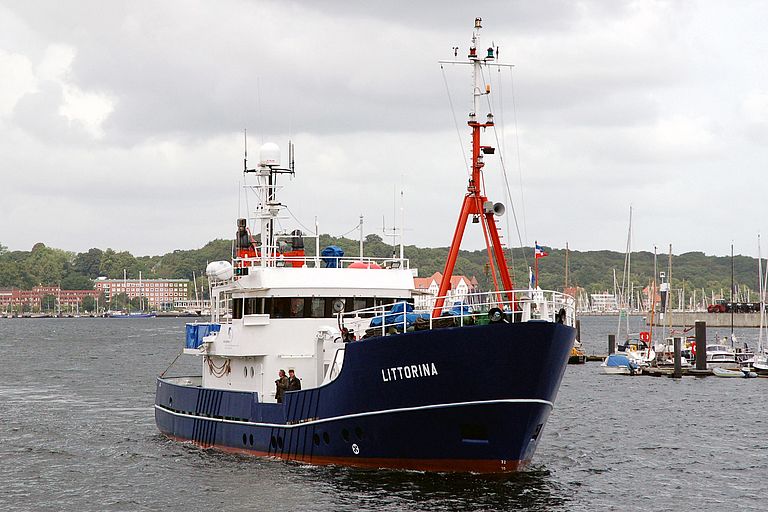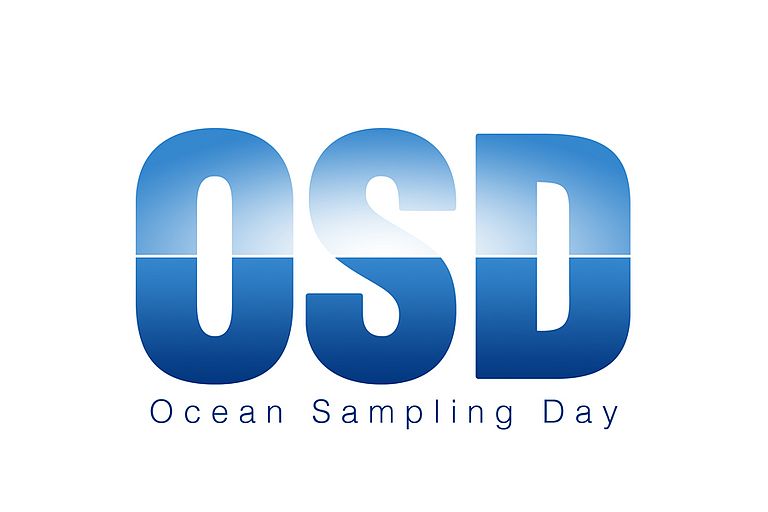International Ocean Sampling Day in Kiel
Researchers at GEOMAR and Kiel University participate in a global measurement campaign
Joint press release of the GEOMAR Helmholtz Centre for Ocean Research Kiel, Kiel University and the Cluster of Excellence “The Future Ocean”
What do Hawaii, Bermuda and Eckernförde Bay have in common? All three - along with about 170 other places around the world – will be part of a worldwide scientific project next Saturday. Researchers around the globe will take seawater samples on the international "Ocean Sampling Day" (OSD), which will then be analyzed regarding the composition of microorganisms using standardized methods. Thus, researchers can obtain a global view of the genetic diversity and distribution of microbes in the sea. "These microscopically small creatures are among the oldest forms of life. They also play an important role in the climate system of the earth. Without them there would, for example, be no atmosphere suitable for humans", says the marine biologist Dr. Carolin Löscher from the Institute of General Microbiology at Kiel University. "It is thus important to learn more about these organisms", adds the marine chemist Prof. Dr. Hermann Bange from GEOMAR Helmholtz Centre for Ocean Research Kiel. Together they will head a team of researchers and technicians that will take water samples at the mouth of Eckernförde Bay for the OSD on Saturday.
For this purpose, the research vessel LITTORINA will take the scientists to the time series station Boknis Eck on Saturday morning. "We take monthly samples there, anyhow, to investigate how many nutrients are in the water, how much oxygen is present, how severe the growth of algae is and also which microbes occur", explains Professor Bange, who coordinates the monitoring station. Even without the Ocean Sampling Day, Boknis Eck is an established name in international marine research. "The sampling there has been running almost continuously since 1957. Thus, Boknis Eck is one of the longest continuously active time series stations of its kind", explains Professor Bange. Continuous measurements of this type over a long period are important, for example, to distinguish natural variations in the environment from man-made changes.
Apart from the few, long time series measurements that exist worldwide, the Kiel scientists see the chance of a global snapshot of the microbial diversity in all world oceans and marginal seas in Ocean Sampling Day. "That is the reason why we decided promptly to participate in the OSD when we heard about the project", emphasizes Dr. Löscher, who, as with Professor Bange, is a member of the Cluster of Excellence "The Future Ocean". The scientists from Kiel are in good company. Other renowned time series stations such as the Hawaii Ocean Time Series (HOTS) or the Bermuda Atlantic Time Series (BATS) support the OSD, as well.
The Ocean Sampling Day was launched by the EU-funded project Micro B3 (Marine Microbial Biodiversity, Bioinformatics and Biotechnology). It is coordinated by Prof. Dr. Frank Oliver Glöckner, Professor of Bioinformatics at Jacobs University in Bremen and investigates microorganisms invisible to the human eye and their importance to the marine ecosystem. In addition to colleagues from science, the organizers of the OSD also encourage interested citizens to collect their own data. Instructions and more information can be found on the website www.oceansamplingday.org.
Those interested in following up on the activities of the OSD 2014 or exchanging ideas with other participants will also get the opportunity to do so. Under the hashtag #osd2014 example, many participants are already tweeting about their activities. Also the journey of LITTORINA to Boknis Eck can be followed on twitter. And because June 21 is coincidentally the first day of Kiel Week, there will certainly also be some impressions of the biggest sailing event in the world.
Links:
www.geomar.de GEOMAR Helmholtz Centre for Ocean Research Kiel
www.mikrobio.uni-kiel.de Institute of General Microbiology at Kiel University
www.futureocean.org The Cluster of Excellence “The Future Ocean“
www.oceansamplingday.org Website about the Ocean Sampling Day with extensive information on possibilities for participation
www.bokniseck.de The time series measurement station Boknis Eck
www.twitter.com/geomar_de GEOMAR on Twitter
Images in high resolution:
Standardized water samples are taken monthly at Boknis Eck since 1957. Photo: Mirja Dunker, GEOMAR
Researchers and technicians take the research vessel LITTORINA to Boknis Eck once every month. Photo: Katja Machill, GEOMAR
Contact:
Dr. Carolin Löscher (Kiel University, Institute of General Microbiology) cloescher(at)ifam.uni-kiel.de
Jan Steffen (GEOMAR, Communication & Media), Tel.: (+49) 0431 600-2811, jsteffen(at)geomar.de
![[Translate to English:] Schon seit 1957 werden monatlich standardisierte Proben an Boknis Eck genommen. Am 21. Juni ist diese Probennahme Teil des Ocean Sampling Days. Foto: Mirja Dunker, GEOMAR Standardized water samples are taken monthly at Boknis Eck since 1957. Photo: Mirja Dunker, GEOMAR](/fileadmin/_processed_/e/5/csm_2012-11-06_BoknisEck-Littorina-CTD_MDunker-GEOMAR_d9115aae36.jpg)




